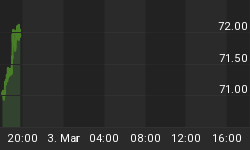INCIDENT: The traditional Swiss finishing school taught young women etiquette and social graces, but international bank regulators are talking about something much tougher when they refer to a "Swiss finish" for global banks.
Just how tough became clear last week, 4 October, when a Swiss commission proposed that its two giant banks, UBS and Credit Suisse, be subjected to capital requirements of up to 19%, nearly three times as tough as the 7% capital-to-assets ratio recently suggested by the Basel Banking Committee as a minimum global standard.
SIGNIFICANCE: The ambitious Swiss plan, designed to solve the "too big to fail" problem, will set the standard for megabank regulation as Group of 20 heads prepare for their summit in November. It almost certainly means that other big global banks such as JP Morgan Chase and Deutsche Bank will face capital surcharges from their national regulators.
Swiss National Bank President Philipp Hildebrand left no doubt in an op-ed last week that the Financial Stability Board, mandated by the G-20 to ready proposals on financial regulation, would push for the higher standards for big banks.
"Two years after the demise of Lehman Brothers, the 'too big to fail' problem remains unresolved," Hildebrand wrote in the Financial Times. "The Financial Stability Board (FSB) and its members are committed to proposing measures to the Group of 20 leaders to address the problem."
ANALYSIS: The FSB, as well as the Basel Committee itself, are international groupings loosely affiliated with the Bank for International Settlements in Basel, Switzerland. The FSB gained new legitimacy when the first G-20 summit in 2008 expanded its representation and called on it to make regulatory proposals for the G-20 leaders.
Resistance a Foregone Conclusion: The push for higher capital requirements will meet considerable resistance, especially from German banks, which have traditionally been undercapitalized. But US and UK banks will also object because capital is costly and so a drag on profitability.
There were some initial skirmishes at the IMF/World Bank meetings in Washington over the weekend. The Institute of International Finance, which groups some 400 of the world's largest banks, warned against "overreaction" by national regulators seeking to "gold-plate" capital requirements.
Global Standard Obstacles: One obstacle to getting a global standard is that bank regulations are set by national authorities. While the G-20 is attempting to establish some peer review to create pressure for individual members to follow through on joint resolutions, each country must implement the rules individually.
The second problem with the "Swiss finish" in particular is that it relies on a financing vehicle, which, like clean coal technology, has great appeal as a solution to an urgent problem but has never really been tested in practice.
The Swiss requirements rely on contractual contingent convertible bonds, referred to as CoCos, to fulfill up to 9% of the proposed capital requirements, with the other 10% in the form of common equity. CoCos are bonds that would automatically convert to equity if the bank's capital ratio sank below a certain level.
These convertible bonds would have to have a higher yield to compensate investors for the risk that they would automatically convert to equity, but even so the market for these securities remains largely untested. In the Swiss proposal, some of the bonds would have the trigger point set rather high, increasing the risk that they would be converted to equity at some point, while another segment, designed as a buffer for truly stressful times, would have a lower trigger point.
In his op-ed, Hildebrand warns that without these supplemental measures for the biggest banks, national authorities will face the same dilemma when the next financial crisis strikes - either to accept the financial turmoil from a collapse like that of Lehman Brothers or to once again inject taxpayer money into the banks as with the highly unpopular bank bailouts last year.
The "too big to fail" issue is particularly acute for Switzerland, because the balance sheet of the two big Swiss banks is several times bigger than the tiny country's GDP. But the Swiss have traditionally maintained a strong capital base to increase their competitiveness in the international market place.
BOTTOM LINE: The Swiss measures, which were agreed to by the two big banks, will create market pressure for other big banks, irrespective of whether their national regulators adopt similarly tough requirements.
Hildebrand's tough stand on the capital requirements marks the emergence of a relatively young central banker. A former swimmer who just missed the cut for the 1984 Olympics, the 47-year-old Hildebrand took over the top spot at the Swiss central bank at the beginning of this year.
His leadership on this issue could position him as a possible successor to the current FSB chairman, Bank of Italy governor Mario Draghi, if Draghi, for instance, were to be selected as president of the European Central Bank next year.
Source: http://www.globalintelligencereport.com/categories/Professional-Level-1
Analysis by Global Intelligence Report staff
The global Intelligence Report is a Private news & Intelligence service for sophisticated news consumers, investors and energy market participants. To find out more please visit: http://www.globalintelligencereport.com/categories/Professional-Level-1
















